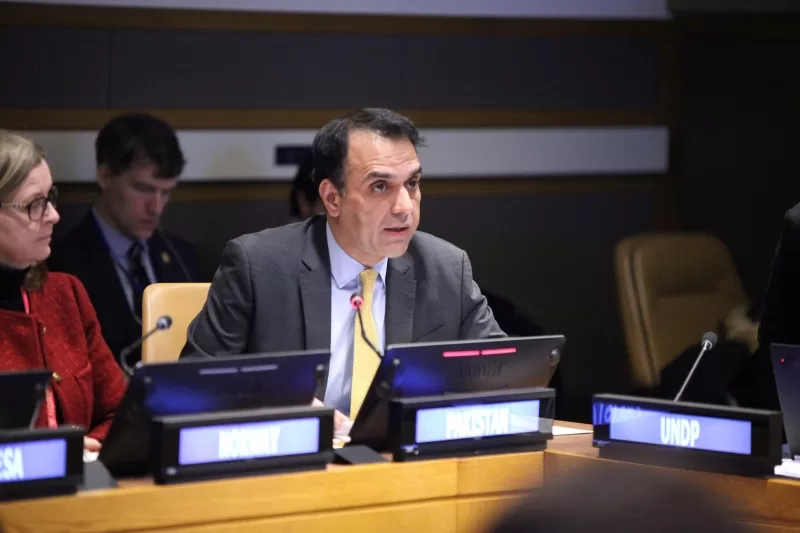
UNITED NATIONS, January 27, 2025 (WSH) — Pakistan has urged the international community to provide concessional financing mechanisms to assist developing nations in overcoming the financial hurdles of clean energy transition, emphasizing the importance of global cooperation in achieving sustainable development.
Urgent Call for Concessional Financing
Addressing delegates at a United Nations event commemorating the International Day of Clean Energy, Ambassador Usman Jadoon, Pakistan’s Deputy Permanent Representative to the UN, highlighted the critical need for financial support to empower nations with limited fiscal resources.

“Developing countries, constrained by limited fiscal space, cannot pursue costly energy projects without greater access to concessional financing,” Ambassador Jadoon stated.
Collaborative Efforts for Sustainable Energy
The event, co-sponsored by Pakistan, was organized by the Group of Friends of Energy, a coalition co-chaired by Pakistan, committed to advancing policies that expand global access to sustainable energy solutions.
Ambassador Jadoon acknowledged global progress in clean energy, citing UN data on the rise of solar power, electric vehicles, and wind energy. However, he underscored the uneven development across regions. “China leads the momentum in developing and emerging economies, but this disparity underscores the need for international policies that enable other nations to transition effectively,” he said.

Pakistan’s Renewable Energy Ambitions
Highlighting Pakistan’s renewable energy goals, the envoy detailed plans to increase renewables to 60% of the country’s energy mix by 2030, including an additional 13,000 megawatts of hydropower capacity. He also noted Pakistan’s vast untapped potential in solar and wind energy.
The scale of these ambitions, however, requires substantial investment. “Pakistan’s energy transition goals come with an estimated price tag of over $100 billion,” Jadoon emphasized.

Global Investment Needs
On a global level, the Ambassador pointed out that achieving the 1.5°C target of the Paris Agreement would necessitate $150 trillion in investments in energy transition technologies and infrastructure by 2050.
“Partnerships are essential to help developing countries overcome these challenges,” he remarked. “On this International Day of Clean Energy, we must commit to bold, cooperative actions—both nationally and internationally—to achieve our shared energy transition goals.”






mdu9g1